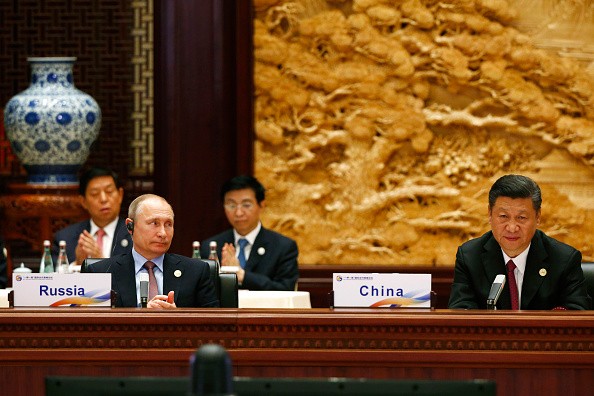Chinese President Xi Jinping welcomed delegates from more than 100 countries, including 28 heads of states, to the two-day One Belt One Road (OBOR) Summit in Beijing that started on Sunday, May 14. The president called the OBOR as "project of the century."
The Financial Times reported that Xi also announced that the initiative will provide billions to finance infrastructure and trade projects, as Europe and the U.S. scaled back their international commitments.
According to the report, the Beijing forum serves as an occasion for Xi to project its political influence to the outside world, which is in need of leadership amid U.S. unpredictability and the Brexit fallout, and also in preparation for his second term as leader of China's Communist Party.
"Spanning thousands of miles and years, the ancient silk routes embody the spirit of peace and co-operation, openness and inclusiveness, mutual learning and mutual benefit," Xi said in his opening speech. "We should foster a new type of international relations featuring win-win co-operation, and we should forge partnerships of dialogue with no confrontation and of friendship rather than alliance."
The OBOR initiative aims to increase the country's political and economic influence while tackling industrial overcapacity.
The initiative is also an effort to reflect on China's glorious past. The "road" refers to eunuch admiral Zheng He's maritime trade routes during the 14th to 15th century Ming dynasty, while the "belt" refers to the Silk Road through central Asia used during the 7th to 10th century Tang dynasty.
"Xi wants to get everyone in a room together and give this idea another big political push," Sir Tom Troubridge, China head for PwC and vice chairman of the China British Business Council, said. "I can't put a number on it, but if it works half as well as China wants, it will still be the biggest infrastructure project in the world for years to come."
During the forum, Xi announced funding initiatives that included 100 billion yuan ($14.5 billion) for the Silk Road fund, 250 billion yuan in special lending schemes to the China Development Bank and 130 billion yuan to the Export-Import Bank of China to fund infrastructure, industry building and financing.
About $1.7 billion in loans have been disbursed by the Asian Infrastructure Investment Bank for nine projects, which have been co-financed with other lenders.



























